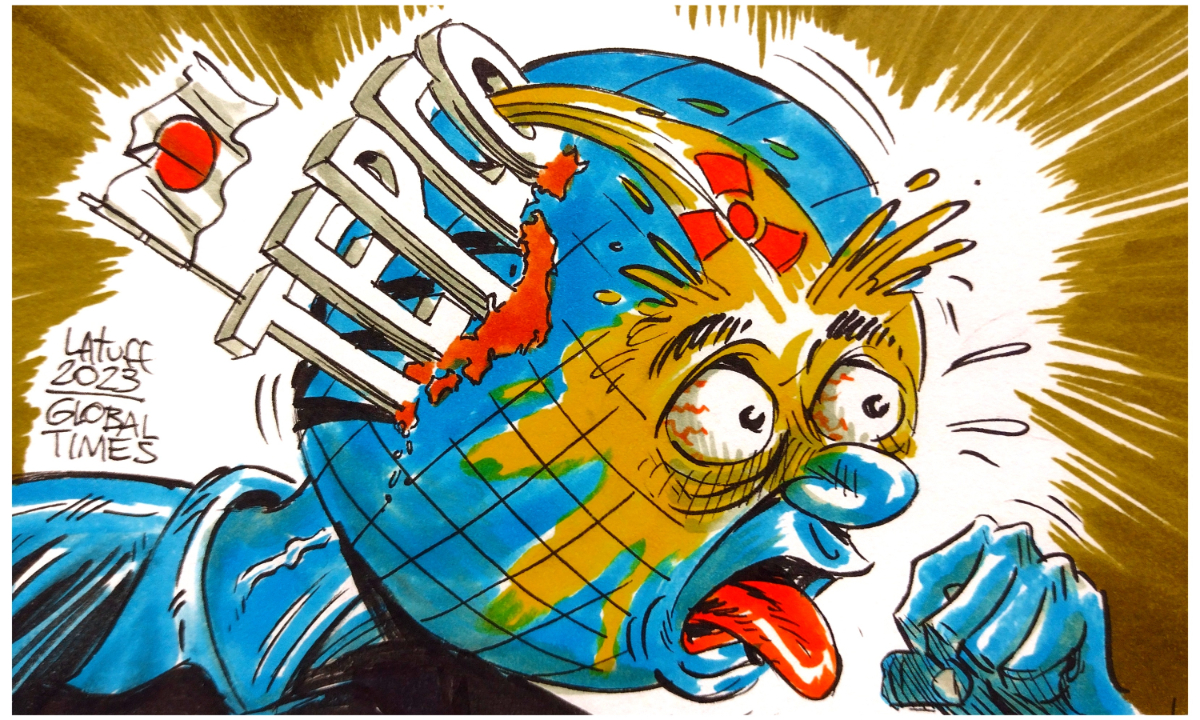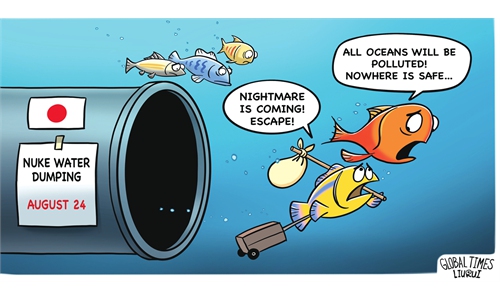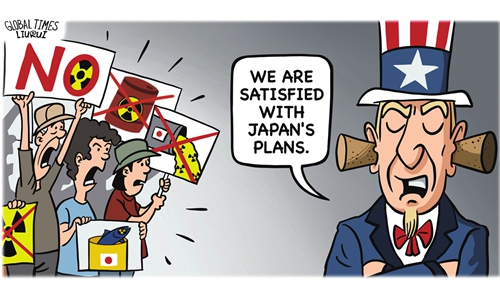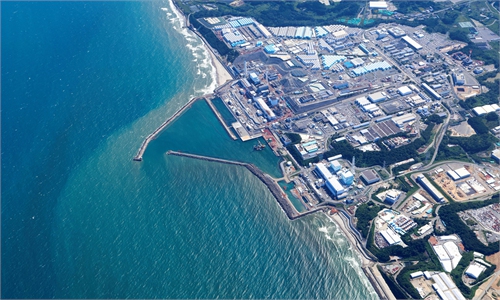‘I will never go to Japanese restaurants again’: Chinese netizens concerned over Japan’s toxic dumping

Japan's reckless dumping of nuclear wastewater poses a grave danger to Earth. Cartoon: Carlos Latuff
As Japan began dumping nuclear-contaminated wastewater from the Fukushima nuclear power plant into the Pacific Ocean on Thursday despite strong opposition from the international community, Chinese netizens expressed their anger and concern, with a large number of netizens saying that they would no longer go to Japanese restaurants.
Affected by Japan's "forced dumping," many domestic Japanese restaurants have told media outlets that they will adjust their product lines, and seafood will be selected from domestic sources or imported from other coastal countries. Some even said that they will consider switching to other cuisines.
Experts said that Japan's dumping of nuclear-contaminated wastewater will have a clear impact on Chinese people's public opinion toward Japan. China is the largest importer of seafood from Japan, and many Chinese people are fond of eating Japanese food. The dumping will undoubtedly have a very negative impact on the national image of Japan, as well as on the safety of Japanese brands, especially food, a research fellow from the Institute of Japanese Studies at the Chinese Academy of Social Sciences told the Global Times.
In a poll conducted on Sina Weibo, more than 200,000 netizens said they would never patronize Japanese restaurants again. Many netizens living in coastal cities also expressed their anger: "We grew up near the sea, and the sea is like our mother. Japan's practice of contaminating the sea is incomprehensible and unforgivable."
Guo Fan, the director of Chinese sci-fi blockbuster series The Wandering Earth, forwarded an image from the famous manga Doraemon which said: "Dumping garbage into the sea is ill-bred." His post triggered a large number of reposts and resonance from netizens.
In addition, some netizens summed up the concept of environmental protection discussed in several Japanese animated works and television shows.
"Japanese anime is trying to promote the protection of the sea, but the Japanese government is determined to discharge sewage into the sea. How ironic!" one netizen commented.
China's famous illustration team Wuheqilin also posted a new artwork in response to the dumping. In the image, Japan is depicted as a mutated monster, symbolizing that the nation has suffered from nuclear radiation and is now unrecognizable. The artwork portrays the monster disgorging nauseating yellow pollutants into the sea, creating a disturbing image. Titled "Are You Taking Humanity Down with You, Bastard?" it quickly went viral on Sina Weibo, garnering more than 360,000 likes.
The Hong Kong SAR decided on Tuesday to ban the import of fish products from 10 cities and prefectures in Japan from Thursday, including all live, frozen, refrigerated, dried or otherwise preserved fish products, sea salt, and unprocessed or processed seaweed.
Some media outlets reported that since Hong Kong people have long been fond of sashimi, many people have criticized Japan's dumping of nuclear-contaminated wastewater as disregarding public safety, saying that they will never eat sashimi again, while also expressing that they are worried how it will affect the aquatic products of other countries if the sea becomes polluted.
According to media reports, many Japanese supermarkets in Hong Kong have already labeled their seafood with the origin of the products.



